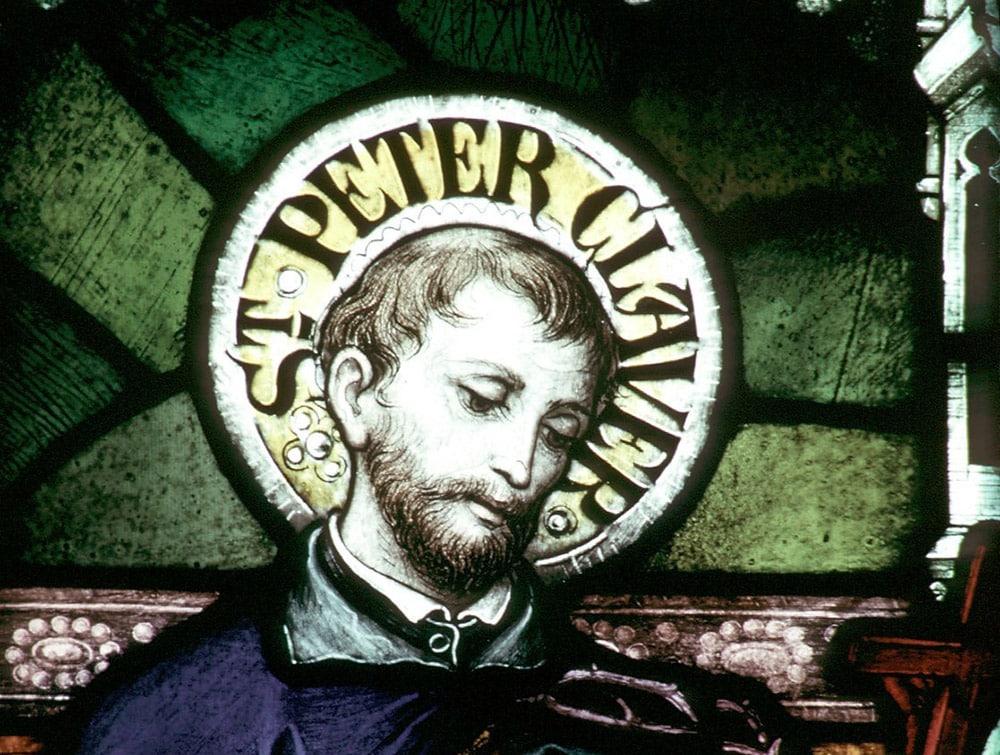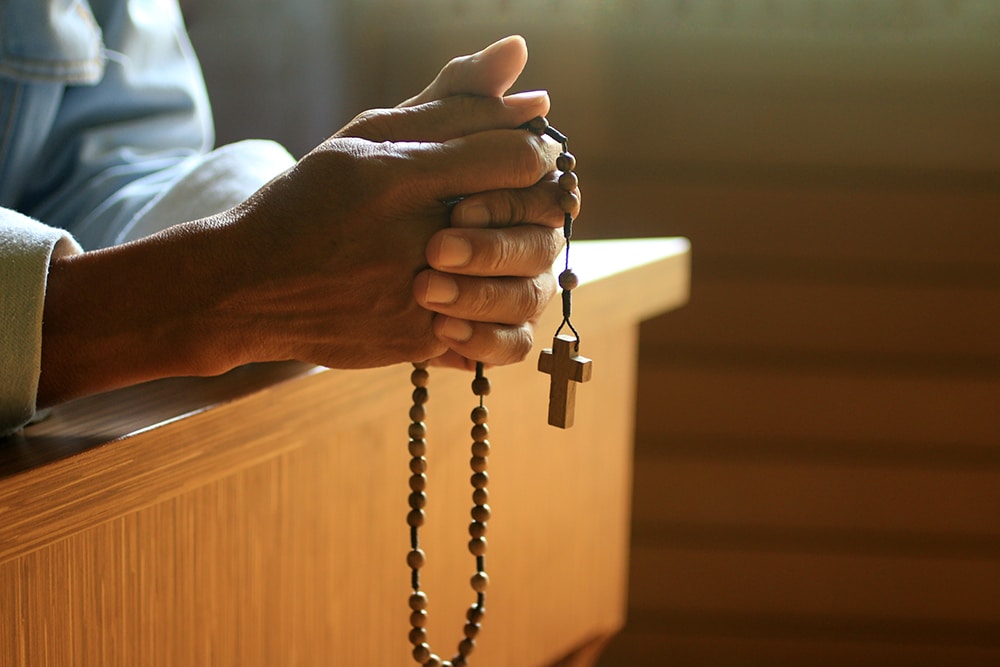We stand in a moment of American history that calls for a new patron saint in race relations. In recent months and years, we have witnessed terrible racial division and riots, exacerbated by the Black Lives Matter movement during the summer of 2020. Now, in 2021, we hear of the movement by many school systems, for example, to undertake the divisive critical race theory.
Few Catholics throughout history have seen first-hand the horrors of slavery and the slave-trading system as Peter Claver did in 17th-century Colombia. Claver crossed the Atlantic Ocean in 1610 to serve as a missionary to the colonies in the New World. He landed in Cartagena, Colombia, which was one of the largest slave-trading ports in the Western Hemisphere. Just five years later, he was ordained a priest, and he committed to serving the rest of his life in this setting. He lived and worked for the rest of his days, knowing that he was called by God to minister to the enslaved men, women and children who had been brought there.
As we look to Claver as a new patron for race relations, we must know his tactics and tendencies. One of Claver’s most well-known axioms was, “We must speak to them with our hands before we try to speak to them with our lips.” The saint operated by the truth that every human person, regardless of race, religion or socio-economic status, has inestimable and inviolable dignity in God’s eyes. This axiom also recognizes that it is difficult to share the Gospel with people who aren’t ready to receive it because of their bodily condition. Claver knew that meeting a person’s human needs is the best avenue to later sharing the Good News of Jesus Christ, and he lived by this axiom all his years. We would do well to assimilate it into our culture as well.
Another tendency Claver exhibited was to make every effort to learn the languages and dialects of the African slaves. Initially, he traveled with a team of seven interpreters, which allowed him to learn the African languages as quickly as possible. In our own situation, we would do well to work with cultural interpreters — those who can share the goodness of a culture we may not understand. Let’s ask St. Peter Claver to bring those interpreters to us.
Once he had gained trust and credibility, Claver took that opportunity to share the Gospel with slaves. The most basic truth that he desired to teach them was that divine love is much bigger than the abuses they suffered, and that divine love was not thwarted by evil ways. He knew the truth that St. Paul had taught in the ancient Roman world: “Do not repay anyone evil for evil … but conquer evil with good” (Rom 12:16-21). Claver wanted the abused slaves to remain in right relationship with God, and thus he counseled them against acting in ways of retribution. We can only hope that this attitude will prevail in our own cultural moment.
Each spring, Claver would travel to the plantations in the region surrounding Cartagena to check on many of the slaves he had known at the docks. He would often be offered the opportunity to sleep in the homes of the master-planters, but he refused and slept in the slave quarters instead. This was to show solidarity with the enslaved peoples. We must ask St. Peter Claver in our own age to reveal ways by which we can show solidarity with groups of people who are different from us. This is the only sure path of racial justice and healing in our culture.
There is one other crucial lesson here for us. While he believed the actions of slave traders and owners were immoral, he never believed that traders or owners were deemed beyond the mercy of God, or that they were incapable of conversion to truth and right moral action. In our own day, we must not deem racism as an incurable disease. We must realize that the Holy Spirit can convert the hearts of those who have said and done heinous things in the name of race. To see this happen, we simply must intercede constantly for those people and for our social system.
In all these ways, Claver became a great moral force advancing the Gospel in Cartagena, in the surrounding region and in South America. He helped the people of Colombia, both slaves and slave traders, commit to upright lives. He brought divine love into what was a difficult and polarized situation. We can only hope and pray that such divine love will be able to enter into our national scene in the present moment.
In addition to St. Peter Claver, for our present moment, we would do well to seek the intercession of two other faithful servants who are on the path to sainthood. Venerable Augustus Tolton (1854-97) was the first Black priest in the United States, who kept the love of Jesus foremost in his heart as he withstood significant trials of racism in Chicago in the late 19th century. There is also Servant of God Thea Bowman (1937-90), a convert to the Catholic faith who became a Franciscan sister, served as a teacher and later traveled the country giving presentations aimed at breaking down racial barriers. Both of these two great American witnesses knew the message and truth preached and lived by St. Peter Claver, who ministered to those in need because they are human persons and because they are loved by God regardless of their socio-economic status.
With a nation so sharply divided, we ought to begin (or continue) praying for racial reconciliation and healing, asking for the intercession of St. Peter Claver and others so that faithful Catholics may rise up and imitate their actions.
Derek Rotty is the author of “A Life of Conversion: Meeting Christ in the Gospels” (OSV, $15.95). He writes from Tennessee.







